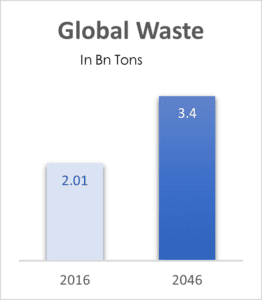According to agood company, Conscious consumerism means consumers deliberately making purchasing decisions that they believe have a positive social, economic, and environmental impact. In short, it means shopping mindfully with sustainability in mind.


In recent years there’s been an increased spotlight on ‘Conscious Consumerism’ prompted by the growing prominence of climate protests and the popularity of activists like Greta Thunberg. The mere existence of human beings has an impact on our environments, and political and economic systems. Consumer choices impact our social framework as they influence which businesses and organizations garner public support through every dollar spent. With the climate crisis looming and growing steadily day by day, conscious consumerism is a necessity and not a luxury in today’s world.
Why should consumers make a conscious choice?


According to reports, millennials are willing to spend more for sustainable products than they would for more harmful alternatives. By 2021, customers in the US alone are anticipated to spend $150 more on conscious consumption.
Consumers are waking up their power and impacting social change through the dollar they spend. Unsurprisingly, millennials and Gen-Z consumers seem to be leading the way when it comes to making conscious choice.


Several actions have accelerated conscious consumption patterns. A few of them are:
-
Widespread use of the internet and social media
The internet age and the rise in smartphone adaption has provided people with better access to information, knowledge and alternative ways of life that are more sustainable.
-
The COVID-19 pandemic
The pandemic had given people around the world the time to slow down and introspect. It also made us aware of how vulnerable we are to the forces of nature and look at the effects of climate change around us. This gave many households the time to consider their shopping choice and realign to more sustainable ways of life.
-
Access to sustainable products and services
The internet age and economic development in a developing country like India have paved the way for sustainable businesses to easily reach customers via the internet and other supporting infrastructures, like cheaper couriers, influencer marketing and more
Becoming a more conscious customer
-
Mindful Purchases
One of the most important steps to becoming a conscious consumer is to be mindful and intentional with one’s purchases. Purchasing only those things that one needs and intentionally want can go a long way in positively impacting the environment and one’s finances.
-
Local First
Buying Local produce and things can contribute towards reducing one’s carbon footprint and can support the local communities
-
Consume Less
An important facet of being a conscious consumer is consuming less in the first place. It is important to first shop at home in one’s storage or closet before setting out to purchase.
-
Recycle, reuse and thrift
Criticism against conscious consumption
-
Affordability
Sustainable products and services are still in nascent stages compared to their commercial counterparts who have amassed tremendous technology and economies of scales advantages.
Hence, many environmentally friendly goods still cost more than conventional ones.
-
Accessibility
Large portions of our communities are still unable to vote with their dollar. They are not only left with their voices unheard by harmful corporations and left exposed to the very products and services their speak against.
-
Increased consumption in the name of sustainability
The sustainability movement has often been misinterpreted and marketed incorrectly, leading to more consumption in its name. A large number of people have replaced their perfectly functional kitchenware, water bottles and more, for sustainable alternatives, and mindless purchase of steel utensils and straws.
-
Greenwashing
The lack of standardized labeling or governance bodies has led to rampant miscommunication and greenwashing by corporations.
Despite its shortcomings, conscious consumerism is much-needed movement in today’s hyper-capitalistic and vulnerable environment. Our current consumption patterns cannot be sustained by the earth ‘s resources and needs individual and systemic change in consumption patterns to avoid further damage to our ecosystems

